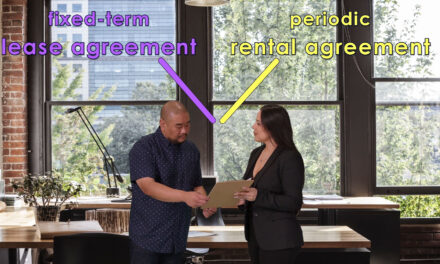The public outcry for a foreclosure moratorium has elicited a reaction from economists urging banks to press forward with the process. These experts are asking homeowners to separate their emotional aversion to foreclosures from their understanding of their economic necessity.
However unpleasant foreclosures may be, they are a vital part of the mortgage lending process. In order for lenders to securely fund mortgages for homeowners, they must be able to fully collateralize their loans and, if necessary, foreclose on their security and take the home of a defaulted owner.
Instead of demanding an end to foreclosures altogether, economists are proposing improvements to the foreclosure process — more legal aid for delinquent homeowners and more government oversight for lenders.
A tax credit for lawyers who give free aid to homeowners is one proposed method of increasing legal resources. A more expansive option is to give lower-income delinquent homeowners a $2,000 voucher for legal fees.
If two million homeowners were given the voucher, it would cost $4 billion, a smaller amount than many other programs previously aimed at reducing foreclosures. For perspective, the Home Affordable Modification Program (HAMP) was a $75 billion initiative.
Any assistance program will function under the authority of a temporary government office created to regulate the remaining mass of foreclosures, which will be re-evaluated after one year.
The central argument for these proposed efforts is that shutting down the mortgage market will do nothing to improve the current economic situation – in fact, it would only undermine the tentative recovery already underway. Instead of halting all foreclosures, the foreclosure process merely needs to be more actively regulated.
first tuesday take: In order for the real estate market to resume its climb out of recessionary despondency, lenders must clean out their massive shadow inventory of foreclosed homes and report their losses (or help keep homeowners in their homes by reducing their principal balances).
A foreclosure moratorium only further delays the inevitable for the majority of homeowners who are seriously delinquent on their mortgage payments or inescapably buried in a negative equity situation. Feet dragging by lenders unwilling to report their losses is also contrary to the greater good of the economy. [For more information regarding the Bank of America (BofA) foreclosure moratorium, see the October 2010 first tuesday article, BofA postpones organic economic recovery by halting foreclosures and the October 2010 first tuesday article, The foreclosure machine grinds again].
Short term solutions involving legal aid for homeowners may prove useful for holding lenders accountable for the mistakes of their robo-signers, but the most important change will be stricter legal recourse for future mortgage lending.
The government has begun to more actively protect homeowners from predatory lending practices with the advent of the Bureau of Consumer Financial Protection (BCFP), but lasting change will not take root and thrive unless lenders are forced to complete the painful process of cleaning out the millions of delayed foreclosures from the Great Recession, a process akin to sucking the venom from a festering snake bite. [For more information regarding the Bureau of Consumer Financial Protection, see the October 2010 first tuesday Legislative Watch.]














I am not a person who is easily delighted but I have to say your work blew me away. So much ideas and relevant detaisl that you put into it made me see your point of view. Thanks for communicating your reasonable inputs.
Superb blog post, a bunch of great data. I am about to show my girlftriend and ask them what they think.
HELLO HELLO. THE FED & THE SEC AND THE WALL STREET BANKS DREAMED UP THESE LOANS. THEN THEY PROFITED WHEN CONSUMERS TOOK THE BAIT<<<<NEXT BUSH & OBAMA AND FED CONSORED ON WEEKENDS TO CLOSE SOME BANKS by cutting there funding,,,,,,,,,,,,,,,,,HELLO THEY ISSUED A TRILLION DOLLARS GAVE IT TO THE WALL STREET BANKS, ALL TO SCREW< REALLY SCREW the homeowner who has paid 4 – to 10 years or more on their home. FACE IT THE GOVT OWNS all the land and mortgages in the USA, Dont believe me? Stop paying your property tax and watch how fast theat same govt comes to take away your home,
When You show me how to win against this STACKED DECK then I might play again till then, FORGET IT. & Why would I pass this screwing on to others, BROKERS you should be ashamed for any sales in the last 3 years, HAPPY HALLOWEEN !!!!